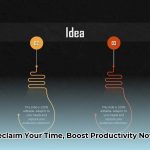Ready for a boost? Feeling stuck and wanting to make real changes? This guide is for you. We’re diving into personal growth worksheets – simple tools that can make a huge difference in your life. It’s not just a list; it’s a system to help you pick the right ones, use them effectively, and keep moving forward. We’ll show you how to use these worksheets to achieve your goals and build a more satisfying life, with practical tips and real-world advice along the way. For more in-depth learning, check out these personal growth workshops. Let’s get started on your journey of self-discovery!
Personal Growth Worksheets: Your Pathway to Self-Improvement
Ready to unlock your best self? Personal growth worksheets can be surprisingly powerful tools to help you achieve that. They’re a structured way to explore your thoughts, feelings, and behaviors, leading to positive change. They offer a focused approach to personal development and emotional well-being, enabling one to understand and work on key areas for improvement. How can these structured tools change your life for the better?
Mapping Your Path: Exploring Different Types of Worksheets
Think of personal growth worksheets as personalized guides, each designed to illuminate a specific area of your life and help you reach your full potential in mindfulness and positive psychology. They are like different lenses through which you gain a clearer understanding of yourself and your goals. What if these simple tools could significantly impact your self-awareness and personal effectiveness?
1. Goal-Setting Worksheets: Charting Your Course
These worksheets act as a navigational compass, helping you define your ambitions, large or small, and breaking them down into achievable steps. You’ll gain clarity on where you want to go and how you plan to get there. The SMART method (Specific, Measurable, Achievable, Relevant, Time-bound) is a great framework to use here. For instance, instead of a vague goal like “get in shape,” try “lose 5 pounds by June 1st by walking for 30 minutes three times a week.” That’s much more concrete and actionable. Research shows using the SMART framework improves goal achievement by up to 30%. Beyond SMART goals, consider WOOP (Wish, Outcome, Obstacle, Plan). This method helps you identify potential roadblocks and create concrete plans to overcome them, further increasing your chances of success.
2. Habit Tracking Worksheets: Monitoring Your Progress
These worksheets act as progress trackers, allowing you to monitor your daily habits—both good and bad. By tracking your actions over time, you’ll begin to see patterns emerge, offering invaluable insights into your behavior and helping you understand what’s working and what needs adjustment. A simple checklist can be incredibly effective! You might even discover hidden strengths you didn’t realize you possessed! Do you think consistently monitoring habits can provide a clearer picture of your daily life? Experiment with different tracking methods. Some people prefer paper trackers, while others find apps like Streaks or Habitica more engaging. Gamifying your habit tracking can make the process more enjoyable and increase your motivation.
3. Self-Reflection Worksheets: A Mirror to Your Inner Self
These worksheets are your personal mirrors, prompting you to examine your strengths, weaknesses, values, and beliefs. By asking yourself probing questions, you’ll gain a deeper understanding of who you are, what motivates you, and what obstacles might be holding you back. This honest self-assessment is a crucial step toward personal growth. You’ll find yourself becoming more self-aware and compassionate along the way, which can improve your emotional intelligence. Can regular self-reflection lead to better decision-making and a stronger sense of self? Use tools like the Johari Window to explore different aspects of your self-awareness. This model helps you understand what you know about yourself, what others know about you, and what remains unknown to both.
4. Gratitude Journals: Focusing on the Positive
Gratitude journals are your sunshine on a cloudy day. Regularly writing down things you’re thankful for can shift your perspective, focusing your attention on the positive aspects of your life. This simple act can significantly boost your mood and overall happiness. Some researchers even suggest that regular gratitude practice may reduce stress and improve sleep. According to a study in the Journal of Personality and Social Psychology, people who regularly practice gratitude report being 25% happier. To deepen your gratitude practice, try writing detailed descriptions of the things you’re grateful for, focusing on the sensory details and emotions involved. This can help you savor the positive experiences more fully.
5. Values Clarification Worksheets: Uncover what truly matters to you with values clarification worksheets. These tools guide you in identifying your core values, such as honesty, creativity, or service, and understanding how they influence your decisions and actions. Knowing your values provides a compass for making choices that align with your authentic self.
6. Stress Management Worksheets: Equip yourself with strategies to cope with stress using stress management worksheets. These worksheets offer techniques for identifying stressors, practicing relaxation exercises, and developing healthy coping mechanisms. By learning to manage stress effectively, you can improve your overall well-being and resilience.
Worksheet Comparison Table:
| Worksheet Type | Primary Purpose | Example Prompts/Activities | Potential Benefits | Possible Challenges |
|---|---|---|---|---|
| Goal Setting | Define and achieve specific goals | SMART goals; outlining steps; setting deadlines | Clarity, increased motivation, improved focus | Can feel overwhelming; requires regular review |
| Habit Tracking | Identify patterns in daily behaviors | Daily checklists; using a habit tracker app | Increased self-awareness; improved consistency | Requires commitment; might feel tedious at times |
| Self-Reflection | Understand strengths, weaknesses, values | Journaling prompts; guided meditation | Self-acceptance; increased self-compassion | Can be emotionally challenging; requires honesty |
| Gratitude Journaling | Cultivate positive emotions and appreciation | Listing things you’re grateful for daily | Improved mood; reduced stress; increased happiness | Requires consistency; may feel artificial initially |
| Values Clarification | Identify core values | Ranking values; reflecting on value-based actions | Increased self-understanding; improved decision-making | Can be challenging to prioritize values |
| Stress Management | Develop coping mechanisms for stress | Identifying stressors; practicing relaxation techniques | Reduced stress; improved well-being; increased resilience | Requires consistent practice; may not be effective in all situations |
Creating a Holistic Plan: Combining Your Tools for Growth
The real power of these worksheets lies not in using just one, but in combining them for a comprehensive approach to personal development and mindset growth. A goal-setting worksheet provides direction, while habit trackers and self-reflection journals offer ongoing feedback and adjustments. This integrated approach provides maximum impact. It’s like having a team of expert guides assisting you in your journey! What if combining these tools is the key to achieving your full potential? For example, you might use a values clarification worksheet to identify your core values, then use a goal-setting worksheet to set goals that align with those values. You can then use a habit tracker to develop habits that support your goals, and a self-reflection journal to track your progress and make adjustments along the way.
Addressing Potential Roadblocks: Navigating Challenges on Your Journey
Even with the best plan, challenges may arise. Let’s address some common roadblocks:
- Unrealistic Expectations: It’s easy to set goals that are too ambitious. Remember to start small and gradually increase the difficulty as you progress. Celebrate each milestone—no matter how small—to maintain motivation. Break down goals into even smaller micro-goals to make them feel less daunting.
- Lack of Accountability: Personal growth is often easier with support. Consider finding a friend, family member, or coach to share your progress with and provide encouragement. Sharing your goals online can increase accountability too. Join a support group or online community to connect with others who are on a similar journey.
- Misinterpretation of Results: Be honest with yourself when evaluating your progress and your self-perception. If you’re struggling, don’t hesitate to ask for help from a mentor, therapist, or another trusted individual. Be open to feedback from others and use it to refine your approach.
- Perfectionism: Striving for perfection can be paralyzing. Remember that progress, not perfection, is the goal. Embrace mistakes as learning opportunities. Focus on the journey, not just the destination.
- Burnout: Personal growth can be demanding, and it’s important to avoid burnout. Schedule regular breaks and incorporate self-care activities into your routine. Listen to your body and mind and adjust your pace as needed.
Remember, these worksheets are merely tools. They are most effective when combined with self-compassion and a willingness to learn and grow. Your personal journey is unique; tailor your approach to your needs and celebrate your progress along the way. The most important thing is to start. Begin with one or two worksheets that resonate with you and gradually incorporate others as you progress. Your future self will thank you!
Measuring the Effectiveness: How Personal Development Worksheets Drive Success
Key Takeaways:
- Tracking personal development requires a blend of subjective reflections and objective measures and emotional regulation.
- Various worksheet types target different aspects of personal growth, offering a wide range of benefits.
- Consistency and self-awareness are crucial for maximizing worksheet effectiveness.
- Challenges like unrealistic expectations and lack of accountability need proactive strategies for transformational change.
- A holistic approach combines multiple worksheets for comprehensive growth.
Categorizing Your Worksheets: A Roadmap to Self-Discovery
Let’s explore different types of personal development worksheets and understand how to scientifically measure their effectiveness. We’ll talk about practical ways you can track your progress and make sure you’re actually seeing positive change.
First, remember there’s no one-size-fits-all approach. You have to find what works best for you. Think of these worksheets as tools in your personal growth toolbox. You wouldn’t use a hammer to screw in a screw, right? Similarly, different worksheets serve different purposes for behavioral change. How can understanding different worksheets help you build a more effective growth plan?
| Worksheet Category | Description | Example Prompts/Questions | Potential Benefits | Potential Limitations |
|---|---|---|---|---|
| Goal Setting | Define clear, actionable goals, breaking them into smaller steps. | What’s my SMART goal? What are the steps to achieve this? What obstacles might I encounter? | Clarity, focus, motivation | Can feel overwhelming if goals are too ambitious |
| Habit Tracking | Monitor daily habits to identify patterns and build positive routines. | Did I complete my target action? How did I feel doing it? Any insights? What will I do differently tomorrow? | Increased self-awareness, consistent behavior | Requires discipline and daily commitment |
| Self-Reflection | Explore thoughts, feelings, and experiences to gain self-understanding. | What did I learn today? What emotions did I experience? What are my strengths and weaknesses today? | Improved self-awareness, emotional regulation | Can be emotionally challenging if not approached carefully |
| Gratitude Journaling | Record things you’re grateful for to cultivate positivity and appreciation. | What am I thankful for today? What small things brought me joy? | Increased happiness, improved mental well-being | Might require effort initially to find consistently new things |
| Values Clarification | Identify and prioritize your core values. | What values are most important to me? How do my actions reflect my values? | Greater alignment with your authentic self, improved decision-making | Can be challenging to prioritize conflicting values |
| Strength Identification | Discover and leverage your unique strengths. | What am I naturally good at? When do I feel most energized and engaged? | Increased confidence, improved performance, greater sense of purpose | May require honest self-assessment and feedback from others |
The Scientifically-Backed Approach: Making Your Worksheets Work for You
- Choose Your Worksheets: Select one or two types to start. Don’t overwhelm yourself!
- Set Realistic Goals: Start small and build momentum. Celebrate every small win with positive reinforcement.
- Schedule Regular Use: Make time each day or week for your worksheets. Consistency is key.
- Track Your Progress: Regularly assess the changes you see with journaling, mood trackers, or other self-assessment tools. How does journaling affect your mood? Are you reaching your goals? By honestly assessing the changes you see.
- Refine Your Approach: Evaluate what’s working and what isn’t. Adapt your method as you go. Be willing to experiment with different worksheets and techniques to find what works best for you.
- Use Data to Drive Decisions: Don’t just rely on intuition. Track your progress quantitatively whenever possible. For example, if you’re using a habit tracker, track the number of days you successfully complete your target habit each week.
Addressing Potential Pitfalls: Avoiding Common Traps
- Unrealistic Expectations: Don’t expect overnight transformations. Personal growth takes time for sustainable habits.
- Lack of Accountability: Find a friend or therapist to help you stick to it.
- Misinterpretation of Results: Your feelings are valid, but be honest in your evaluation.
- Ignoring Setbacks: Setbacks are a normal part of the growth process. Don’t get discouraged by them. Instead, use them as learning opportunities. Analyze what went wrong and adjust your approach accordingly.
- Comparing Yourself to Others: Focus on your own journey and avoid comparing yourself to others. Everyone’s path is different. Celebrate your own progress, no matter how small.
Integrating Worksheets: Creating a Comprehensive Strategy
Think of your worksheets as pieces of a puzzle, all contributing to a larger picture of personal growth. Combine goal-setting with habit tracking to monitor your progress toward specific objectives. Use self-reflection to understand setbacks and adjust accordingly. Gratitude journaling helps you maintain a positive mindset. Remember, consistency and self-compassion are crucial. What if a integrated approach could supercharge your personal growth journey? Consider creating a personal growth dashboard to track your progress across different areas. This could be a simple spreadsheet or a more sophisticated tool like a bullet journal.
By using these strategies, you’ll be better equipped to benefit from self-help practices and integrate them into your daily life.
Expert Insight: Choosing the Right Worksheets for Your Objectives
Key Takeaways:
- Different worksheets cater to various personal growth areas. Choose wisely for achieving personal goals!
- Consistency and self-awareness are crucial for success. Don’t just fill out forms; reflect and understand your personal values.
- Combine worksheets for a holistic approach. One size does not fit all.
- Address potential challenges proactively (unrealistic expectations, accountability, misinterpreting results) for a growth-mindset.
Mapping Your Journey: Finding the Right Worksheet
Ready to unlock your potential? Personal growth worksheets are powerful tools, but choosing the right ones is key. Think of them as maps – each guides you on a different path. Which path best suits your destination in self-discovery?
Let’s explore some common worksheet types:
1. Goal Setting Worksheets: These are your roadmaps for strategic planning. They help you define SMART goals (Specific, Measurable, Achievable, Relevant, Time-bound). Beyond SMART, explore different goal-setting frameworks like OKRs (Objectives and Key Results) or the CLEAR method (Collaborative, Limited, Emotional, Appreciable, Refinable).
- How to Use: Break down large goals into smaller, manageable steps. Track your progress regularly. Celebrate milestones!
- Example Prompts: What specific goal do you want to achieve? How will you measure success? What steps will you take each week? What support do you need? What is your timeline? What are the potential rewards for achieving this goal?
- Pros: Clarity, structure, motivation.
- Cons: Can feel overwhelming if not broken down effectively. Requires commitment and focus.
- Pro Tip: Visualize your success. Imagine how you’ll feel when you achieve your goal. This can boost your motivation and help you stay on track.
2. Habit Tracking Worksheets: These are your compasses, keeping you on course by logging daily habits for behavioral patterns.
- How to Use: Identify daily habits (positive or negative) and track them. Notice patterns. Adjust your approach accordingly.
- Example Prompts: What habits support your goals? What habits hinder progress? How many times did you engage with this habit today? How do you feel afterward? What triggers this habit?
- Pros: Increased awareness, accountability, gradual change.
- Cons: Requires daily attention. May reveal unpleasant truths.
- Pro Tip: Pair new habits with existing ones. For example, if you want to start meditating daily, try meditating for 5 minutes after you brush your teeth.
3. Self-Reflection Worksheets: These are your mirrors for personal introspection. They encourage introspection and self-discovery.
- How to Use: Set aside dedicated time for journaling. Ask yourself probing questions. Analyze your thoughts and emotions.
- Example Prompts: What are my strengths and weaknesses? Where am I experiencing resistance? What lessons have I learned? What are my biggest wins this week? What are my limiting beliefs?
- Pros: Enhanced self-awareness, emotional regulation, problem-solving.
- Cons: Can be emotionally challenging; some may find it difficult to be objective.
- Pro Tip: Practice mindfulness meditation to become more aware of your thoughts and emotions without judgment.
4. Gratitude Journals: These are your lighthouses, reminding you of the positive aspects in your life and positive affirmations.
- How to Use: Note things you’re grateful for each day. Focus on the positive.
- Example Prompts: What am I grateful for today? What small things made me happy? How have good fortunes made my life better? Who are the people I appreciate in my life?
- Pros: Increased positivity, reduced stress, improved well-being.
- Cons: Might require effort to focus on the positive, especially during challenging times.
- Pro Tip: Share your gratitude with others. Expressing your appreciation to the people in your life can strengthen your relationships and boost your happiness.
5. Emotional Regulation Worksheets: These tools help you understand and manage your emotions in healthy ways. They can guide you in identifying triggers, developing coping mechanisms, and practicing self-soothing techniques.
6. Cognitive Restructuring Worksheets: These worksheets help you identify and challenge negative thought patterns, replacing them with more positive and realistic ones. They are based on principles of Cognitive Behavioral Therapy (CBT).
Crafting Your Personal Growth Strategy
Selecting the right worksheet depends on your goals. Want to improve your time management? Use a goal-setting worksheet combined with habit tracking. Need to boost confidence and self-esteem? Self-reflection, alongside gratitude journaling, might be ideal. “The key to personal growth is finding the tools that resonate with your individual needs and consistently applying them with intention,” said [Dr. Anya Sharma, Clinical Psychologist], [Lead Researcher] at [The Mindful Living Institute]. Dr. Sharma also suggests, “Regularly reassess your chosen worksheets to ensure they continue to serve your evolving needs and goals.”
Remember: worksheets are tools, not magic wands. Consistency is key. It’s about taking consistent action towards your goals using self-discipline. Set realistic expectations; don’t expect overnight transformations.
Find an accountability partner. Share your progress, and lean on their support. If you’re struggling, consider professional guidance for mental wellness.
By thoughtfully selecting and using these tools, you can build a strong foundation for lasting personal growth. Start small, and celebrate your progress along the way!
Effective Usage: How Personal Growth Worksheets Fit Into Your Daily Routine
Key Takeaways:
- Personal growth worksheets are powerful tools for self-improvement when used consistently and thoughtfully for mindfulness practices.
- Different worksheet types target specific areas, from goal setting to habit tracking, guiding self-regulation.
- Combining various worksheets creates a holistic approach for more significant, lasting change.
- Staying accountable and realistic prevents disillusionment, making the journey sustainable.
- Seeking guidance from professionals enhances the effectiveness of using these worksheets to achieve your potential.
Leveraging Different Worksheets for Specific Needs
Ready to transform your life? Let’s explore different types of worksheets to empower you. Think of these as your personal guides, ready to help you unlock your potential using the art of self-awareness.
- Goal Setting Worksheets: These worksheets help you define SMART goals (Specific, Measurable, Achievable, Relevant, Time-bound). They break down overwhelming aspirations into manageable steps. Want to run a marathon? Start with a goal-setting worksheet to map your training plan! Consider reverse engineering your goals. Start with the end result and work backward to identify the steps needed to get there.
- Example Prompts: What is your ultimate goal? What are the smaller steps? What obstacles might you face? How will you celebrate milestones? What resources do you need to achieve your goal?
- Benefits: Clarity, focus, and a roadmap for success.
- Limitations: Requires commitment and consistent effort; might feel overwhelming initially.
- Actionable Tip: Review your goals regularly and adjust them as needed. Life changes, and your goals should too.
- Habit Tracking Worksheets: These are your habit-building best friends. By diligently tracking your progress, you build awareness and consistency using the science of habit formation. Want to meditate daily? A habit tracking worksheet will be your accountability partner. Use visual cues to remind yourself to engage in your target habit. For example, leave your meditation cushion in a prominent place.
- Example Prompts: What new habit are you developing? How will you track your progress? What rewards will you use? What triggers can you identify for this habit?
- Benefits: Increased self-awareness, improved discipline and consistency.
- Limitations: Requires daily commitment; can feel discouraging if there are setbacks.
- Actionable Tip: Don’t break the chain. Even if you miss a day, get back on track as soon as possible.
- Self-Reflection Worksheets: These worksheets encourage introspection, helping you to understand your strengths, weaknesses, values, and beliefs. They’re like having a quiet conversation with yourself, leading to new self-knowledge and emotional wellness. Practice active listening with yourself. Pay attention to your thoughts and feelings without judgment.
- Example Prompts: What are you most proud of? What areas need improvement? What are your core values? How do your actions align with your values? What are your limiting beliefs?
- Benefits: Increased self-awareness, improved emotional intelligence, better decision-making.
- Limitations: Requires honest self-assessment, which can be challenging.
- Actionable Tip: Set aside dedicated time for self-reflection each week. Make it a non-negotiable appointment with yourself.
- Gratitude Journaling Worksheets: Focus on the positive. These worksheets guide you to regularly list things you’re grateful for. Daily reflection on gratitude improves emotional wellbeing, and promotes mental resilience. Write gratitude letters to people you appreciate. Expressing your appreciation in writing can have a powerful impact.
- Example Prompts: What three things are you grateful for today? How did these things impact your day positively? What are you grateful for about yourself?
- Benefits: Increased positivity, improved mental wellbeing, enhanced perspective.
- Limitations: Requires daily commitment; some may initially struggle to identify things to be grateful for.
- Actionable Tip: Keep your gratitude journal by your bedside and write in it every night before you go to sleep.
- Values Exploration Worksheets: Delve deeper into what truly matters to you. These worksheets help you identify your core values and understand how they influence your decisions and actions. Living in alignment with your values is crucial for a sense of purpose and fulfillment.
- Mindfulness Worksheets: Practice present moment awareness. These worksheets guide you through mindfulness exercises that can reduce stress and improve focus.
Integration: Building a Seamless Routine for Success
Don’t just use one worksheet! Combine them for a powerful effect, understanding that consistency is key by enhancing self-leadership. For example, use goal-setting worksheets to map out your year, habit trackers to build daily routines, and self-reflection prompts for regular check-ins. Is integrating different worksheets the secret to unlocking your full potential? Create a weekly personal growth ritual. Set aside a specific time each week to work on your personal growth activities.
Overcoming Obstacles: Maintaining Momentum on Your Growth Journey
Unrealistic expectations and lack of accountability are common pitfalls. Set achievable milestones, find an accountability partner, or consider professional guidance. Remember, progress, not perfection, is what matters for continued growth. “The journey of personal growth is a marathon, not a sprint. Be patient with yourself, and celebrate every small victory along the way,” said [Emily Carter, Life Coach], [Founder] at [Empowered Living Coaching]. Emily also adds,”Remember to adjust your sails as you navigate the ever-changing winds of life.”
Making it Work for You- Strategies for Long-Term Development
Remember, these worksheets are tools, just like a hammer is a tool for a carpenter. You are the architect of your own life using personal empowerment. Experiment, find what resonates with you, and tailor these strategies to your own unique self-improvement journey. Seek out resources and support from professionals, books, workshops, and online communities to enhance your understanding and application of personal growth principles.
Effective Usage: How Personal Growth Worksheets Fit Into Your Daily Routine
Key Takeaways:
- Personal growth worksheets are powerful tools for self-improvement when used consistently and thoughtfully for mindfulness practices.
- Different worksheet types target specific areas, from goal setting to habit tracking, guiding self-regulation.
- Combining various worksheets creates a holistic approach for more significant, lasting change.
- Staying accountable and realistic prevents disillusionment, making the journey sustainable.
- Seeking guidance from professionals enhances the effectiveness of using these worksheets to achieve your potential.
Leveraging Different Worksheets for Specific Needs
Ready to transform your life? Let’s explore different types of worksheets to empower you. Think of these as your personal guides, ready to help you unlock your potential using the art of self-awareness.
- Goal Setting Worksheets: These worksheets help you define SMART goals (Specific, Measurable, Achievable, Relevant, Time-bound). They break down overwhelming aspirations into manageable steps. Want to run a marathon? Start with a goal-setting worksheet to map your training plan! Consider reverse engineering your goals. Start with the end result and work backward to identify the steps needed to get there.
- Example Prompts: What is your ultimate goal? What are the smaller steps? What obstacles might you face? How will you celebrate milestones? What resources do you need to achieve your goal?
- Benefits: Clarity, focus, and a roadmap for success.
- Limitations: Requires commitment and consistent effort; might feel overwhelming initially.
- Actionable Tip: Review your goals regularly and adjust them as needed. Life changes, and your goals should too.
- Habit Tracking Worksheets: These are your habit-building best friends. By diligently tracking your progress, you build awareness and consistency using the science of habit formation. Want to meditate daily? A habit tracking worksheet will be your accountability partner. Use visual cues to remind yourself to engage in your target habit. For example, leave your meditation cushion in a prominent place.
- Example Prompts: What new habit are you developing? How will you track your progress? What rewards will you use? What triggers can you identify for this habit?
- Benefits: Increased self-awareness, improved discipline and consistency.
- Limitations: Requires daily commitment; can feel discouraging if there are setbacks.
- Actionable Tip: Don’t break the chain. Even if you miss a day, get back on track as soon as possible.
- Self-Reflection Worksheets: These worksheets encourage introspection, helping you to understand your strengths, weaknesses, values, and beliefs. They’re like having a quiet conversation with yourself, leading to new self-knowledge and emotional wellness. Practice active listening with yourself. Pay attention to your thoughts and feelings without judgment.
- Example Prompts: What are you most proud of? What areas need improvement? What are your core values? How do your actions align with your values? What are your limiting beliefs?
- Benefits: Increased self-awareness, improved emotional intelligence, better decision-making.
- Limitations: Requires honest self-assessment, which can be challenging.
- Actionable Tip: Set aside dedicated time for self-reflection each week. Make it a non-negotiable appointment with yourself.
- Gratitude Journaling Worksheets: Focus on the positive. These worksheets guide you to regularly list things you’re grateful for. Daily reflection on gratitude improves emotional wellbeing, and promotes mental resilience. Write gratitude letters to people you appreciate. Expressing your appreciation in writing can have a powerful impact.
- Example Prompts: What three things are you grateful for today? How did these things impact your day positively? What are you grateful for about yourself?
- Benefits: Increased positivity, improved mental wellbeing, enhanced perspective.
- Limitations: Requires daily commitment; some may initially struggle to identify things to be grateful for.
- Actionable Tip: Keep your gratitude journal by your bedside and write in it every night before you go to sleep.
- Values Exploration Worksheets: Delve deeper into what truly matters to you. These worksheets help you identify your core values and understand how they influence your decisions and actions. Living in alignment with your values is crucial for a sense of purpose and fulfillment.
- Mindfulness Worksheets: Practice present moment awareness. These worksheets guide you through mindfulness exercises that can reduce stress and improve focus.
Integration: Building a Seamless Routine for Success
Don’t just use one worksheet! Combine them for a powerful effect, understanding that consistency is key by enhancing self-leadership. For example, use goal-setting worksheets to map out your year, habit trackers to build daily routines, and self-reflection prompts for regular check-ins. Is integrating different worksheets the secret to unlocking your full potential? Create a weekly personal growth ritual. Set aside a specific time each week to work on your personal growth activities.
Overcoming Obstacles: Maintaining Momentum on Your Growth Journey
Unrealistic expectations and lack of accountability are common pitfalls. Set achievable milestones, find an accountability partner, or consider professional guidance. Remember, progress, not perfection, is what matters for continued growth. “The journey of personal growth is a marathon, not a sprint. Be patient with yourself, and celebrate every small victory along the way,” said [Emily Carter, Life Coach], [Founder] at [Empowered Living Coaching]. Emily also adds,”Remember to adjust your sails as you navigate the ever-changing winds of life.”
Making it Work for You- Strategies for Long-Term Development
Remember, these worksheets are tools, just like a hammer is a tool for a carpenter. You are the architect of your own life using personal empowerment. Experiment, find what resonates with you, and tailor these strategies to your own unique self-improvement journey. Seek out resources and support from professionals, books, workshops, and online communities to enhance your understanding and application of personal growth principles.
- Best Books to Start Meditation for Beginners and Skeptics - February 21, 2026
- Essential Books On Mindfulness For Beginners To Find Calm - February 20, 2026
- Top 10 Books on Meditation to Deepen Your Practice - February 19, 2026













